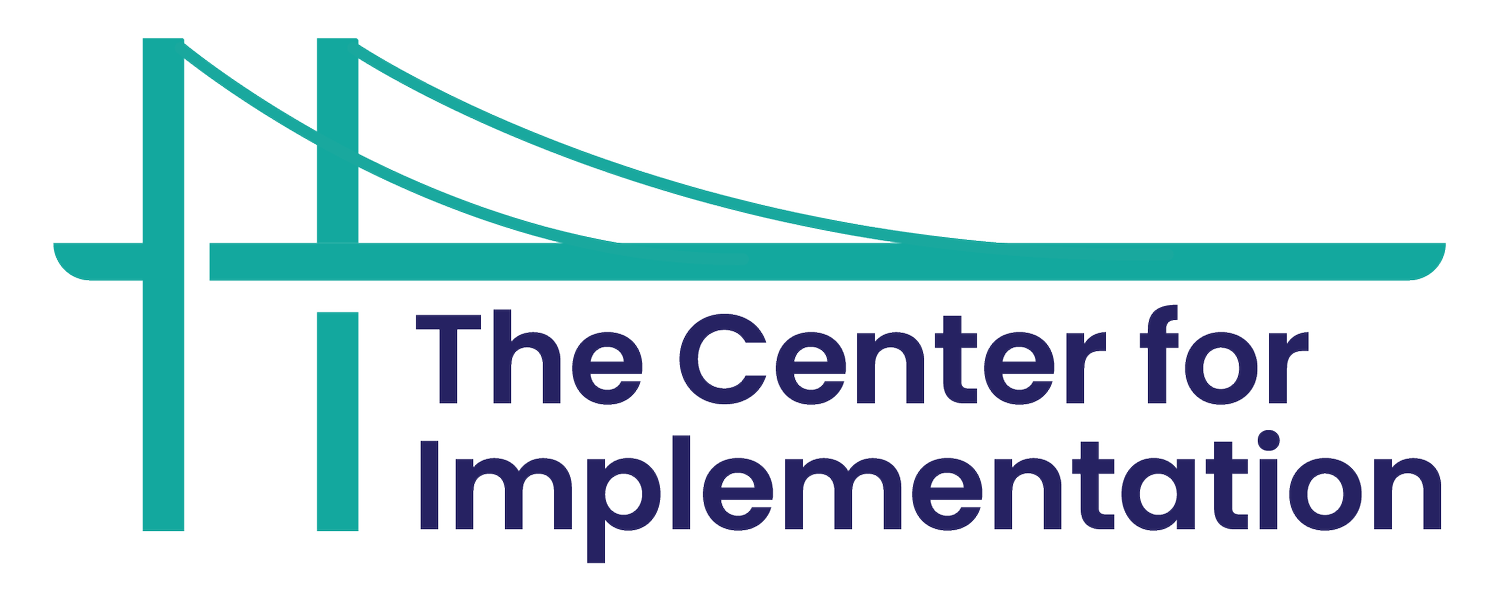Looking Inwards: Reflections on the Role of Intermediary Organizations and Implementation Coaches
By Dr. Julia E. Moore, Executive Director, and Dr. Sobia Khan, Director of Implementation
Note: We have updated our website since this article was published. As a result, you may have been redirected here from a previous URL. If you are looking for the article, "Intermediary organizations: Bridging implementation research and implementation practice to achieve sustainable outcomes” by Will Aldridge, Renee Boothroyd, Robin Jenkins, and Sandra Diehl, please click here.
We know that this is a very challenging time for many people and organizations. As we deal with the implications of the COVID-19 pandemic, roles and responsibilities are being reshaped. We have heard that many implementation efforts have stalled on the front lines of hospitals, public health units, and community settings. This is understandably very difficult.
We can also see this as a small window of opportunity to pause and assess our own internal approaches to implementation and implementation supports. We have spoken to many implementers and intermediary organizations who are using this opportunity to reflect on their processes and more clearly define and describe them so that moving forward they can provide more appropriate implementation support. We want to acknowledge and appreciate these efforts in finding the silver lining in challenging times.
As we increasingly acknowledge the importance of implementation supports in all stages of implementation, the use of intermediaries and or implementation coaches is becoming more mainstream.
This proliferation of implementation supports is a huge opportunity to bridge the implementation science to practice gap. Implementation supports can greatly impact the success of an initiative. However, we often don’t think about or assess implementation supports as part of an intervention, or think about the aspects of supports that make them impactful. When we want to spread or scale initiatives, our lack of attention to designing, describing and operationalizing evidence and theory-based supports means that we can’t scale up the support model with some degree of fidelity. This is important if we want to try to replicate the impact of the initiative in different settings.
Core competencies for implementation practitioners, implementation supports, and intermediary organizations
As a starting place, we have to be able to understand the knowledge, skills, and behaviors expected from the different roles within intermediary organizations, for example implementation coaches. This is what we call the “core competencies” for these individuals. Identifying core competencies can help organizations to more effectively hire and train staff, and develop implementation support processes that can be operationalized across sites or projects. In the past few years, there have been several core competency documents developed that can assist implementers and intermediaries in understanding and identifying the roles and associated core competencies for those roles.
Through work initiated with Health Canada in 2018, we consolidated six existing core competency documents, which included competencies for implementation practice, knowledge translation, and knowledge mobilization. Some of the existing core competency document are great standalone resources, such as the Implementation Specialist Practice Profile. Our synthesized and comprehensive list of core competencies for implementation practitioners highlights the many different roles and responsibilities implementation practitioners and intermediaries may take on, so it translatable to different initiatives and settings. Our core competencies for implementation practice are broader than existing competency documents, capturing both the competencies required to design interventions for implementation (e.g., mapping barriers and facilitators to a behavior change theory and selecting implementation strategies), as well as competencies needed to support implementation (e.g., assessing readiness and contextual fit). These core competencies are a good foundation for embarking on the next step – evaluation.
Evaluation of implementation supports
In addition to understanding the core competencies of implementation practitioners and intermediary organizations, it is a good idea to evaluate the effectiveness of our implementation supports. We do not want to fall into a trap of assuming that implementation supports have an impact without data to back that up. Therefore, we must develop or use metrics for implementation supports and conduct larger scale evaluations to assess the impact of those implementation supports.
This article was featured in our monthly Implementation in Action bulletin! Want to receive our next issue? Subscribe here.
